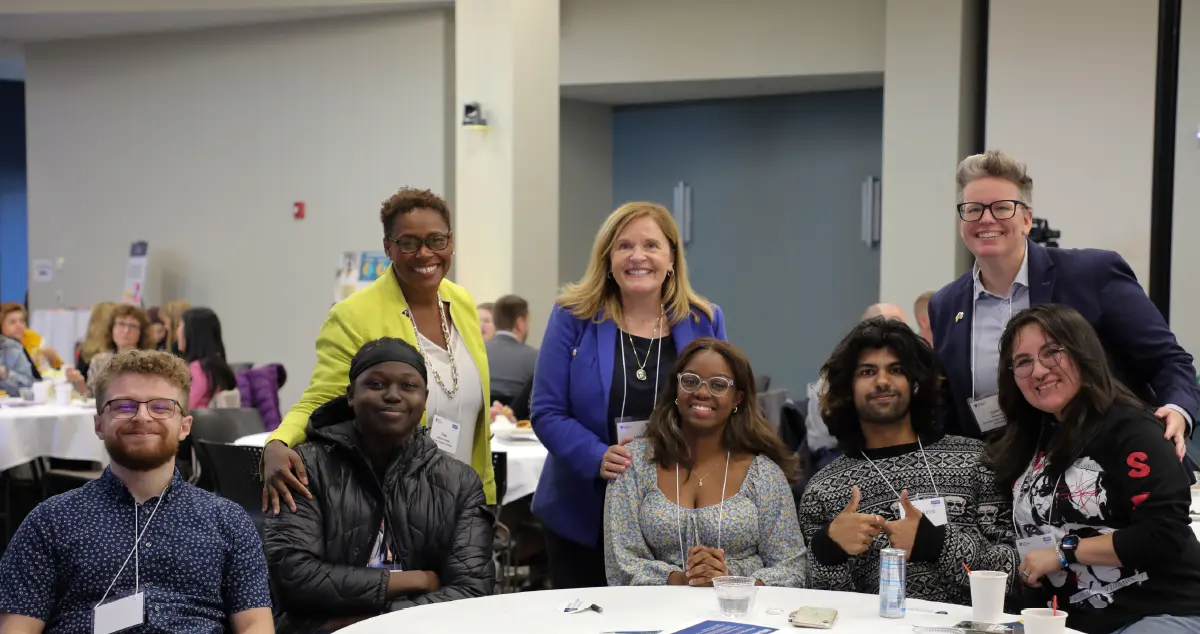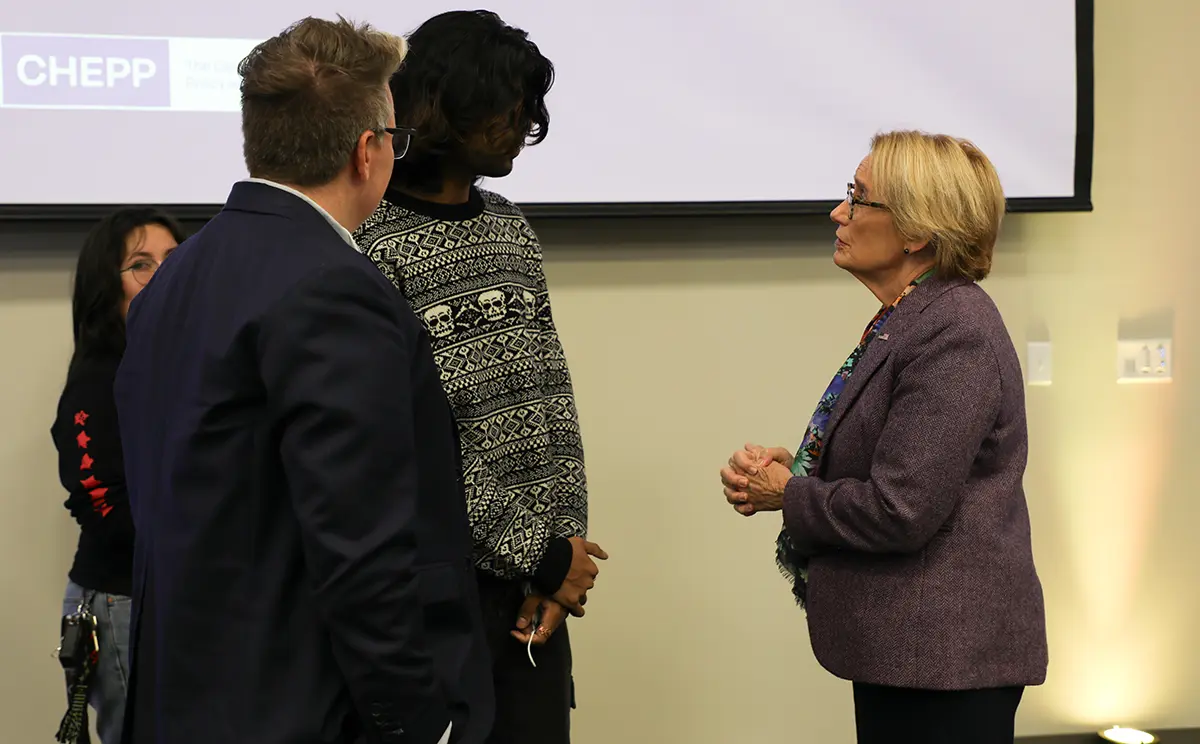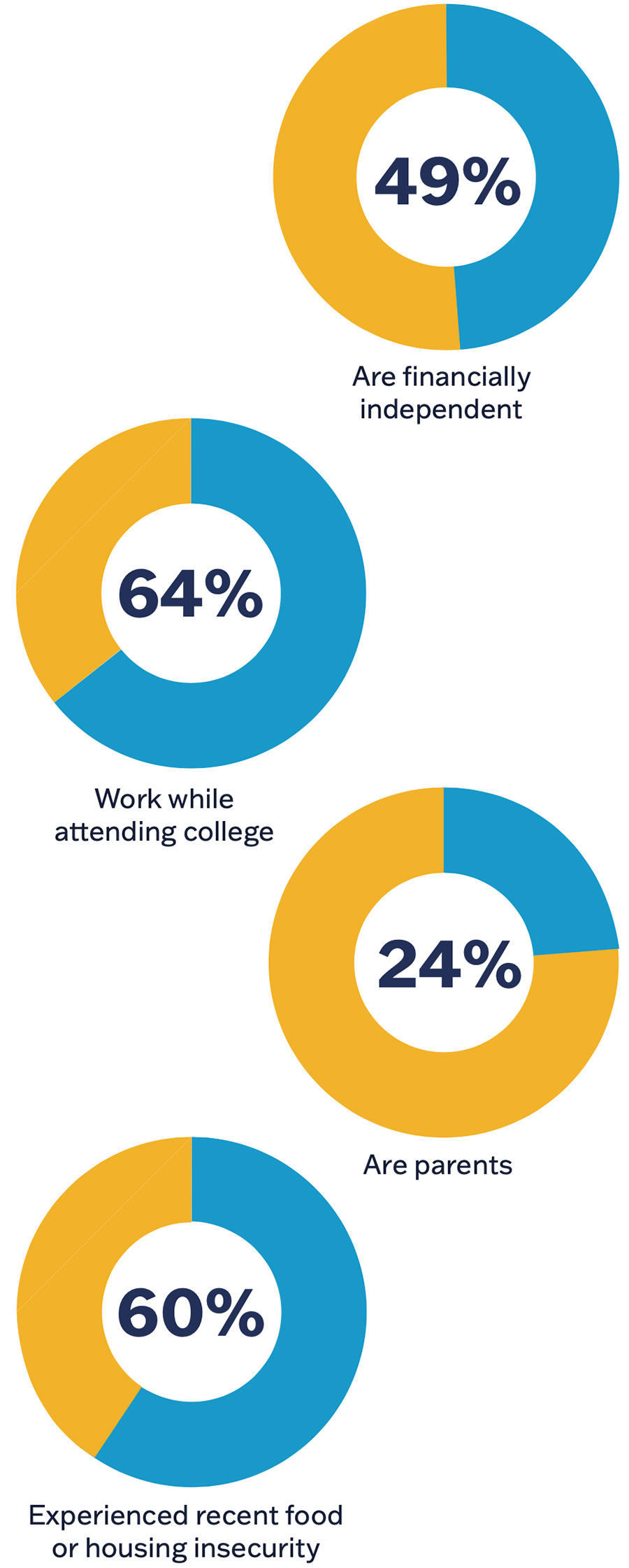SNHU Gathers State Leaders to Address Basic Needs for Today’s Learners

During the COVID-19 pandemic, the federal government created the Higher Education Emergency Relief Fund (HEERF), providing $70 billion in grants to support students in need. A 2023 report from the Center for Higher Education Policy and Practice (CHEPP) found that SNHU learners receiving HEERF grants were up to 15% more likely to stay enrolled the following semester, highlighting the impact of basic needs access on student success.
Advocating for More Basic Needs Support
In her opening remarks, SNHU President Lisa Marsh Ryerson emphasized the collective impact of unmet needs. “When anyone in our community lacks food or shelter, we all suffer. This is a shared responsibility, and it’s time for federal policymakers to support robust solutions to combat basic needs insecurity.”
The event’s centerpiece was a panel of students who shared personal stories that brought the issue to life. Moderated by Dr. Lynn Zlotkowski, SNHU’s senior director of student retention and success, the panel included SNHU students from both campus and online programs, as well as a student from Saint Anselm College. Their stories highlighted difficult choices they face—whether to pay for transportation to class or a week’s worth of groceries, or whether to prioritize tuition over rent.
Stories of Resilience
“I don’t want to drop out,” he said. “If I graduate, I’ll be in a position to support my parents and siblings. But right now, it’s hard to know if there will be food in the fridge or if I can afford transportation.”
Kenyang’s story, like those of so many students, underscores how a single setback can cascade into a crisis. Yet, his determination and resilience inspire hope. With support from SNHU, including a scholarship that allowed him to move back on campus, Kenyang is now on track to finish his degree.
Supporting Students’ Basic Needs
“These resources are critical, but we know they’re not enough,” said President Ryerson. “The needs of today’s learners are growing, and we must do more to meet them.”

Advocating for Policy Change
At the event on campus, U.S. Senator Maggie Hassan stressed the importance of systemic change. “The challenges of college should come with exams, papers, and maybe a part-time job to pay for discretionary expenses—not for the necessities of life,” she said. Senator Jeanne Shaheen also expressed her support through a letter read at the event, highlighting the need for collective action.
SNHU’s advocacy extends beyond campus boundaries. By collaborating with institutions like the University of New Hampshire and Manchester Community College, as well as national organizations like SchoolHouse Connection, SNHU and CHEPP are building a coalition to address student homelessness and food insecurity.
Looking Ahead
Through partnerships, advocacy, and community-driven solutions, SNHU is leading the charge to make basic needs insecurity a challenge of the past. Together, we can create a future where every student has the resources to reach their full potential.
TODAY’S LEARNERS…
